Smart Home Technologies for Property Management in Ghana
As the world continues to develop, smart home technologies are increasingly shaping how properties are being managed. These technologies, which leverage the Internet of Things (IoT), artificial intelligence (AI), and automation, are gaining traction globally, offering unparalleled convenience and efficiency. For Ghana, a country undergoing rapid urbanization and technological growth, smart home solutions are poised to become the foundation of modern property management in the near future.
The impact of smart home technology on property management is already evident. It enables homeowners and residents to manage energy consumption more effectively, reduce utility costs, and contribute to sustainability efforts. Features like smart thermostats, automated lighting, and solar panel monitoring ensure that homes operate efficiently while minimizing waste. Additionally, security has seen significant improvements through smart surveillance systems, motion detectors, and biometric access control, offering residents peace of mind in a country where safety is a top priority.
Despite its growing adoption, challenges such as high installation costs, inconsistent internet infrastructure, and limited awareness hinder the widespread use of these technologies. Addressing these obstacles will require collaborative efforts from the government, tech providers, and property developers to promote accessibility and affordability. The good news: smart home upgrades can start small — read How to Create a Smart Home on a Budget in Ghana.
Smart Home Revolution: How Matter is Transforming Our Living Spaces
LED Strip Lights Price in Ghana (2026 Guide)
This article delves into the latest trends in smart home technology in Ghana, examining its transformative impact on property management, the obstacles faced in its implementation, and also strategies to encourage its broader adoption. Smart home technologies are not merely a trend; they represent a sustainable and innovative future for Ghana’s real estate sector. For a broader look at this transformation, read Smart Homes in Ghana’s Real Estate: The Transformative Power.
The Rise of Smart Home Technologies
Thanks to developments in the Internet of Things (IoT), artificial intelligence (AI), and connectivity, smart home solutions have become increasingly popular worldwide. Property managers in Ghana may automate critical functions like security, climate control, and lighting by using smart solutions. In addition to enhancing living standards, these systems optimize energy use, which saves money over time.
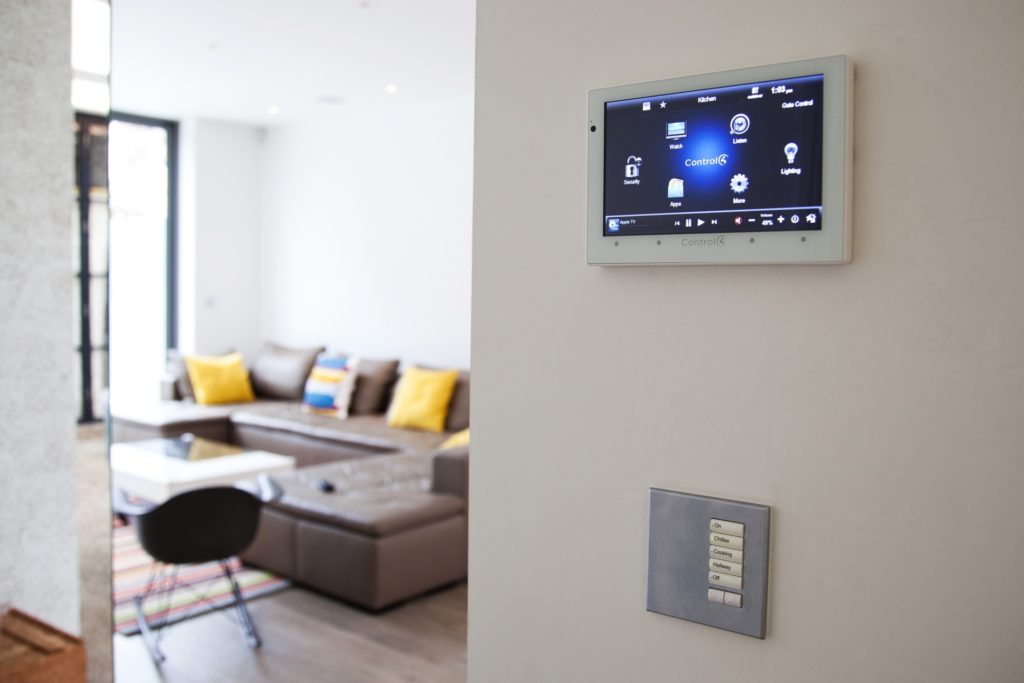
For example, using smartphone apps, a property manager in Ghana can now remotely adjust lighting and keep an eye on security. Advanced sensors and voice-activated assistants are two examples of technologies that assist property managers in providing residents with a smooth living environment. With linked gadgets becoming commonplace in residential premises, Ghana is now in line with worldwide trends. See what’s next in our 2025 Smart Home Trends in Ghana report.
Energy Management and Sustainability
Smart home technologies offer some of the biggest advantages in terms of energy management. To ensure efficiency and reduce operating expenses, these systems are made to track and optimize energy use. Automated lighting and sophisticated thermostats are examples of smart energy solutions that allow properties to adjust to the schedules and preferences of their users while reducing waste.
Smart technology helps reduce wasteful energy use by utilizing real-time data and sophisticated controls, which encourages sustainability and lowers utility costs. This innovation improves energy efficiency and lessens environmental impact, benefiting residents and property managers. For practical tips, see our guide on how to reduce energy bills with smart home technology. Modern property management relies heavily on these systems because of their seamless integration.
Advanced Energy Systems
Cooling systems are crucial in Ghana’s hot heat, and smart thermostats such as the Nest Learning Thermostat offer effective solutions. By accommodating residents’ habits and preferences, these gadgets make sure air conditioners only run when necessary, which helps save energy. In a similar vein, smart lighting systems improve energy economy by automatically turning off or dimming lights in empty areas.
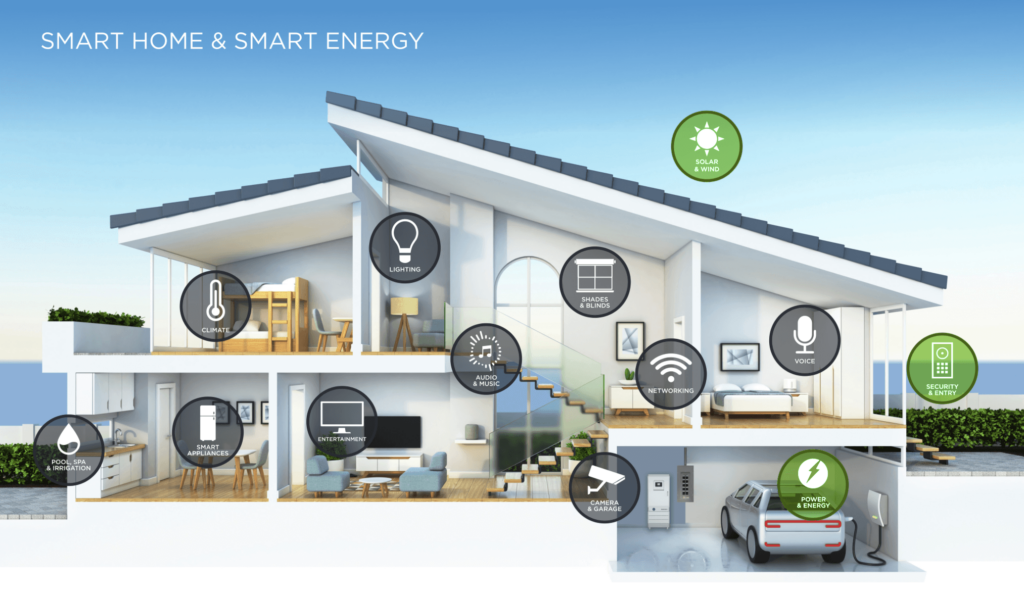
These devices greatly reduce waste and utility expenses by cutting down on wasteful energy use. They are perfect for contemporary property management in Ghana’s environment because of their clever automation, which not only increases convenience but also encourages sustainable living habits.
Promoting Sustainability
Growing environmental consciousness makes sustainability a top concern. Power reliability is also a key factor — learn how to keep your smart home running during ECG power cuts. Smart house technologies incorporate functions such as water management systems and solar panel monitoring. A smart irrigation system, for example, can minimize waste in communal residential areas by modifying the use of water depending on weather conditions. Real estate professionals can use information from current time energy monitoring systems to teach renters environmentally responsible practices.
These developments lower utility costs while simultaneously promoting residences as eco-friendly investments, which appeals to Ghana’s younger, more environmentally conscious renters.
Enhancing Security and Safety
Smart home technologies successfully meet security needs in Ghana, where people place a high value on protection, by providing sophisticated systems designed to safeguard both persons and property. These creative solutions provide real-time alerts for any attacks with features like motion sensors, security cameras, and remote monitoring capabilities.
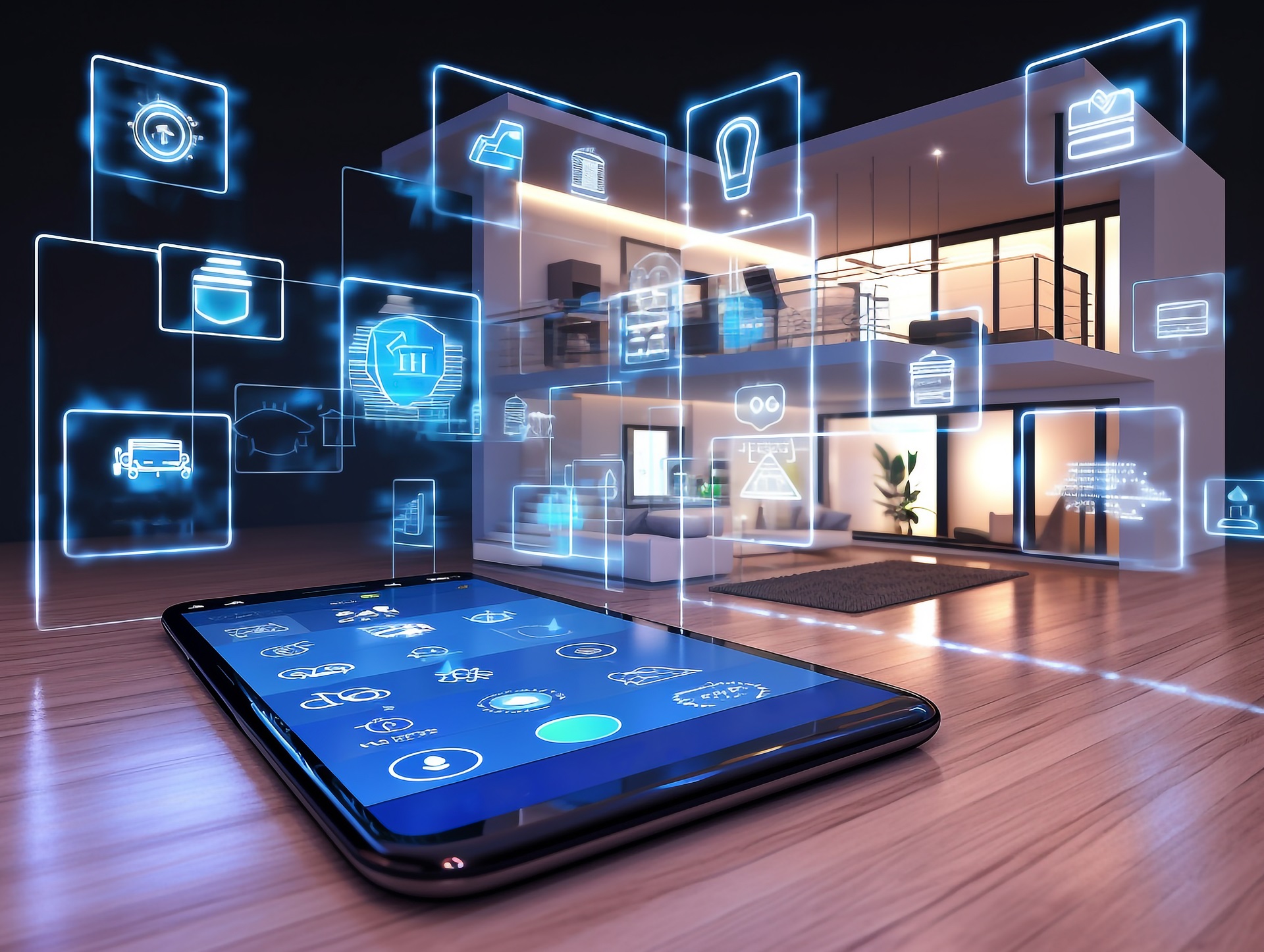
Biometric access control systems also improve security by limiting access to properties to those who are permitted. Smart home systems are a vital tool for tackling Ghana’s security issues in contemporary residential and commercial settings since they enable homeowners and property managers to get a greater degree of protection and peace of mind by incorporating these technologies.
Real-Time Monitoring and Alerts
High-resolution cameras and motion sensors in security systems allow for real-time alerts to be sent to residents and property management. For instance, the system can instantly alert security staff if it detects unethical activity close to an entrance.
Smart Access Control
In Ghana, biometric access systems are becoming more and more popular in upscale buildings. By limiting access to authorized users, these systems lower the possibility of intrusions. Property managers can simplify guest management by remotely granting or denying access. For homeowners looking for practical options, smart door locks with mobile app control are now available in Accra starting from ₵350.
Emergency Preparedness
Additionally, smart technologies improve emergency safety. Through prompt notifications and guidance, automated evacuation systems, carbon monoxide sensors, and smoke detectors can save lives. Using AI, for example, a smart evacuation system may identify the safest pathways in the event of a fire and alert inhabitants via smart home hubs or mobile apps.
Enhancing Resident Convenience and Comfort
Smart home technologies promote residential living by making the space appealing and also user-friendly, going beyond the scope of security and conservation of energy. Through the help of these developments, inhabitants can easily operate appliances, automate daily tasks, and customize their living areas, advancing their convenience and standard of life. With their cutting-edge features, smart homes redefine comfort and meet the changing demands of contemporary life.
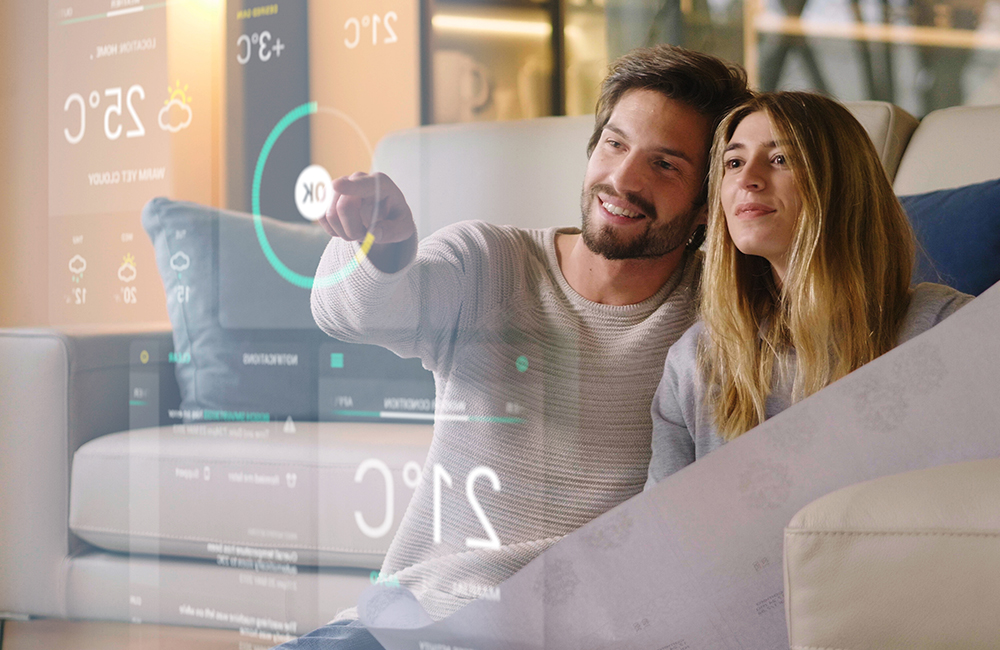
Voice-Activated Controls
With the help of voice-controlled programs like Google Assistant or Amazon Alexa, homeowners can quickly perform all sorts of household tasks. The residents can make use of vocal commands to operate entertainment systems, organize chores, as well as change the room’s temperature. Younger tenants who are tech-savvy will find this convenience especially tempting.
Integrated Smart Appliances
Real estate professionals can use smart appliances to improve tenant satisfaction. Examples of devices that offer unparalleled convenience are washing machines that can be operated through smartphone apps or refrigerators that keep track of expiration dates. These devices streamline daily tasks, increasing the appeal of residences to prospective renters.
Personalized Home Automation
Another big benefit is the ability to personalize one’s living space. Residents can design customized routines with smart home technologies. One “morning routine” may be turning on a favorite playlist, turning on the coffee machine, and gradually brightening the lights, all automatically. Because of this customization, dwellings become real homes.
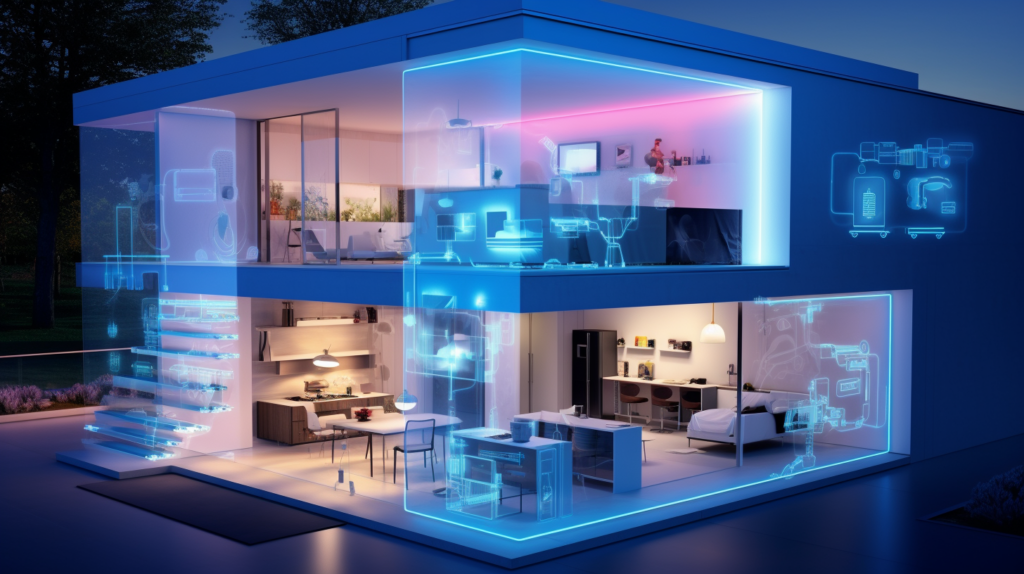
Challenges of Adopting Smart Home Technologies in Ghana
Smart house technologies have advantages, but some drawbacks must be addressed when incorporating them into Ghanaian property management.
High Initial Costs
For developers and property managers, the initial expenses of smart home systems may be unaffordable. The high cost of gadgets like security cameras and smart thermostats may also prevent their widespread use. Proving the long-term cost reductions these technologies offer is necessary to overcome this obstacle.
Infrastructure Limitations
An obstacle to the dependable deployment of smart home technologies in Ghana is the country’s patchy electrical and internet connections. Meanwhile, Stable Wi-Fi connections are necessary for many devices to operate efficiently. The need to enhance infrastructure to facilitate technological breakthroughs is highlighted by this problem. For practical guidance on setting up reliable connectivity, see our guide on optimizing internet connectivity for smart homes in Ghana.
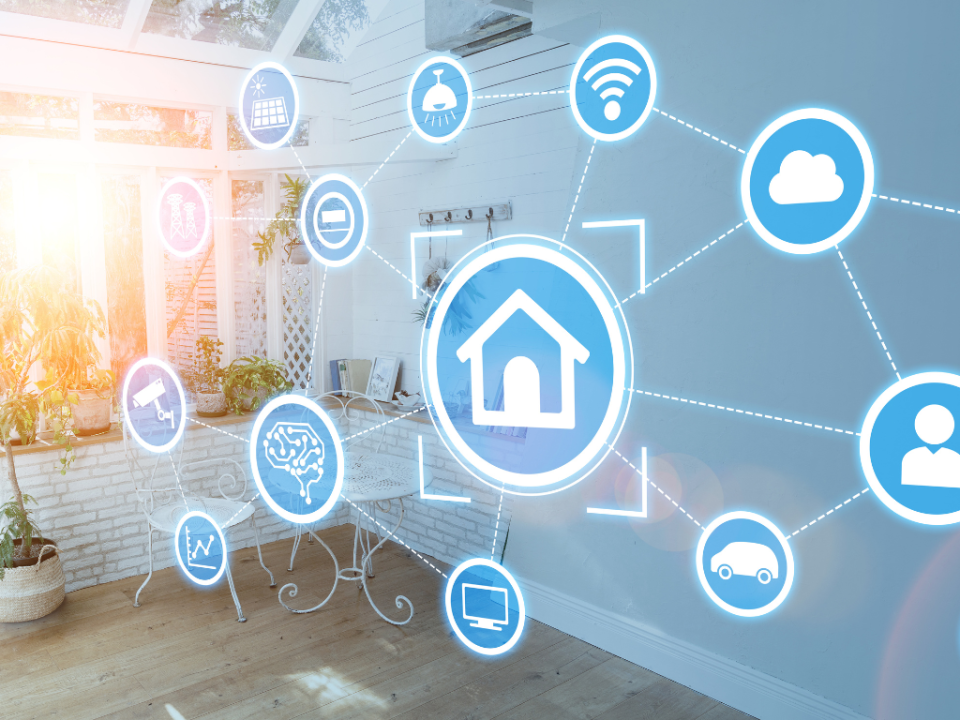
Knowledge Gaps
A lack of awareness among property managers and tenants about how smart systems work can hinder adoption. Some people may resist change due to unfamiliarity or skepticism about these technologies.
Strategies for Promoting Smart Home Technologies in Ghana
The success of smart home technology depends on stakeholders removing current obstacles and successfully highlighting their advantages.
Government Incentives
The implementation of laws that support green building techniques is one important way that the government can help. It is also possible to increase adoption rates by providing tax breaks or subsidies to developers who incorporate smart systems.
Partnerships with Tech Companies
These solutions can become more widely available through cooperation between digital companies and real estate developers. To assist property managers in better understanding the technologies, businesses might provide training sessions or bundled packages.
Education and Awareness Campaigns
Public education regarding the advantages of smart home systems is essential. The ways in which these technologies enhance sustainability, comfort, and security can be demonstrated through workshops, internet campaigns, and in-person events.
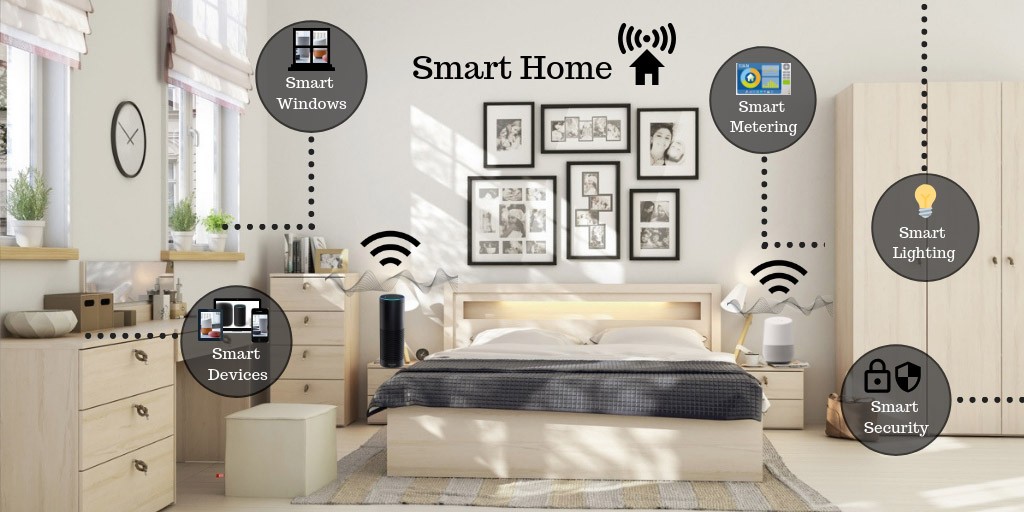
Conclusion
The introduction of smart home technology is changing how properties are managed in Ghana; it’s more than simply a fad. Through the provision of customized comfort, increased security, and improved energy efficiency, these advances satisfy the demands of both property managers and tenants. However, cooperation from all parties involved is necessary to overcome obstacles like exorbitant prices and inadequate infrastructure. Adopting smart home technologies offers a route to contemporary, sustainable, and effective property management as Ghana continues its development. It’s time for the real estate industry to leap at the chance these technologies present and reimagine the kind of life will be like in the future.
Are You In Need Of Assistance With Building Your Smart Homes?
Do you need an expert who will help you build a tech-savvy home for you with a slim budget? Smart Homes Ghana will help you with your smart home needs with technology and security recommendations.
Visit our website smarthome.com.gh today for more information about our products and services.
Related Articles
From Makola to Airport Hills: Affordable Smart Home Security for Every Ghanaian Neighborhood
Top 5 Smart Home Upgrades for New Homeowners in Ghana (2026 Guide)
Real Smart Home Projects in Ghana (With Costs and Savings)
Where Can I Buy Smart Door Locks With Mobile App Control in Accra?
Internet Connectivity for Smart Homes: Optimizing Your Setup in Ghana
Smart Home Revolution: How Matter Is Transforming Our Living Spaces

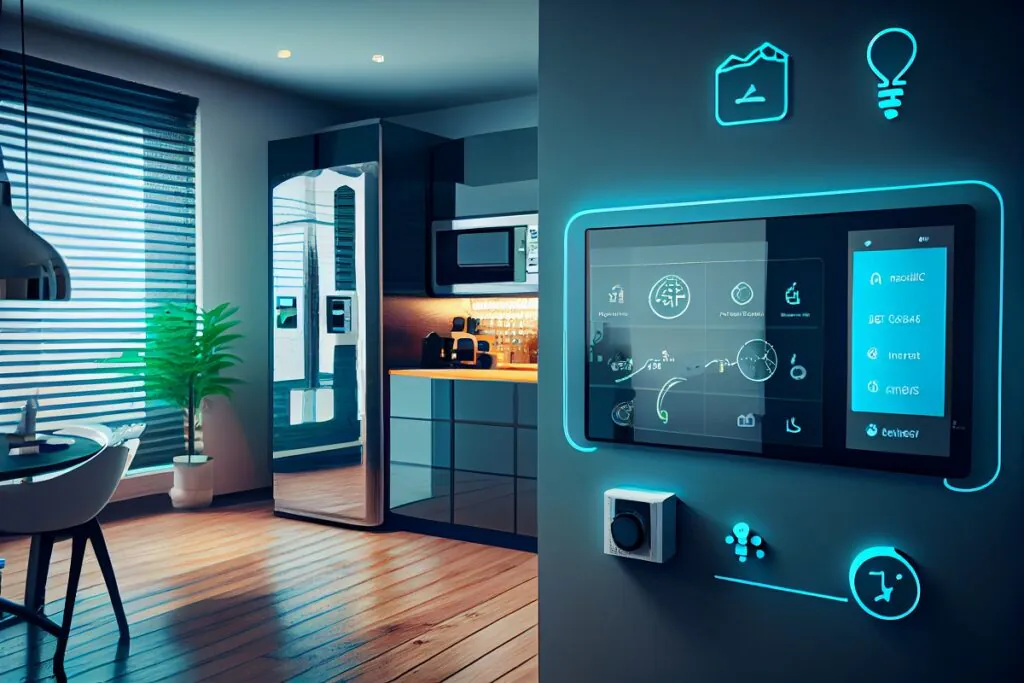







Add comment